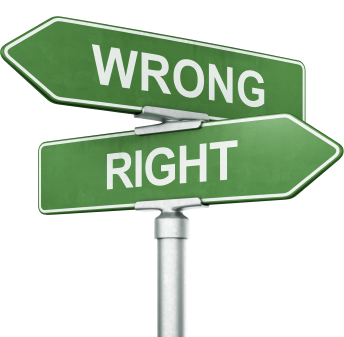The Dark Web: Navigating the Shadows of the Internet
The Dark Web refers to a part of the internet that is intentionally hidden and requires specific software or authorization to access. It is a subset of the Deep Web, which includes all parts of the internet that are not indexed by traditional search engines. While the Deep Web includes genuine platforms like private databases, password-protected websites, and academic resources, the Dark Web is specifically associated with anonymity and the suppression of online activities.
Access to the Dark Web is typically enabled through specific software such as Tor (The Onion Router). Tor enables users to browse the internet anonymously by directing their traffic through a network of volunteer-operated servers. This process makes it challenging to trace the identity or location of users, contributing to the overall sense of anonymity associated with the Dark Web.
One distinctive feature of the Dark Web is its emphasis on privacy and anonymity. Users often operate under pseudonyms, and activities conducted on the Dark Web are designed to be untraceable. Cryptocurrencies like Bitcoin are commonly used for transactions, further obscuring the identities of those involved.
The internet is a vast and interconnected network which serves as a global platform for communication, information sharing, and commerce. However, beneath the surface lies a hidden land known as the Dark Web, a mysterious and often misunderstood corner of the internet. In this article, we will explore the nature of the Dark Web, its functions, and the challenges it poses.
Understanding the Dark Web

The Dark Web is a part of the Deep Web, which refers to content not indexed by traditional search engines. While the Deep Web includes legitimate platforms like private databases and academic resources, the Dark Web is a subdivision that intentionally conceals its content and users.
Access to the Dark Web is facilitated through specialized software such as Tor (The Onion Router). Tor enables users to browse anonymously by routing their internet traffic through a series of volunteer-operated servers, making it difficult to trace their online activities.
Layers of Anonymity

One of the defining features of the Dark Web is the emphasis on anonymity. Users often operate under pseudonyms, and transactions commonly involve cryptocurrencies like Bitcoin, which further vague the identities of those involved. This anonymity attracts a diverse range of users, including journalists, political activists, and whistleblowers seeking protection from exploitive rules.
Legitimate Uses
All the activities on the dark web are not illegal as it is popularly believed. It provides a secure space for individuals to communicate freely without fear of observation. Journalists and activists in oppressive surroundings use the Dark Web to share information and coordinate actions, protecting themselves from potential revenges.
Illegal Activities

While the Dark Web has legitimate uses, it is also infamous for hosting illegal activities. Black markets selling drugs, weapons, stolen data, and hacking services thrive in this hidden network. Cryptocurrency exchanges on the Dark Web facilitate transactions that are often untraceable, contributing to the challenges faced by law enforcement agencies in fighting cybercrime.
Challenges for Law Enforcement

Dark web poses lot of challenges to law enforcement agencies. The combination of encrypted communications, anonymous transactions, and the global nature of the internet makes it difficult for authorities to identify and arrest those engaged in illegal activities. Despite efforts to shut down specific websites and detain key players, the decentralized nature of the Dark Web makes it tough to traditional law enforcement campaigns.
Technological Responses

To combat the challenges posed by the Dark Web, technological advancements are essential. Law enforcement agencies and cybersecurity experts are continually developing tools to trace and arrest criminals operating in this secret environment. However, as technology changes, so do the methods employed by those seeking to exploit the Dark Web for illegal activities.
Ethical Considerations

The debate surrounding the Dark Web extends beyond legal and technological considerations to ethical dimensions. While privacy advocates argue that the Dark Web is essential for protecting individual freedoms, critics contend that its secrecy enables criminal enterprises. Striking a balance between privacy rights and the need for security remains a complex and ongoing challenge.
Beyond Illicit Trade

It is crucial to recognize that the Dark Web is not only a hub for illegal trade. It also serves as a space for individuals to express dissent in oppressive regimes, share uncensored information, and engage in discussions that might be prohibited elsewhere. Understanding this slightly different scene is essential for formulating effective policies that address illicit activities while safeguarding the genuine uses of the Dark Web.
The Future of the Dark Web

As technology advances and societies try to make a balance between privacy and security, the future of the Dark Web remains uncertain. Continued efforts to develop and deploy advanced cybersecurity measures will play a crucial role in justifying the risks associated with this hidden empire. Stricter regulations and international cooperation are also necessary to tackle the global nature of Dark Web activities.
Conclusion
The Dark Web, with its layers of anonymity and encrypted communication, presents a complex and complicated scene. While it is notorious for hosting illegal activities, it also serves as a protection for those seeking to exercise their right to privacy and freedom of expression. Navigating the shadows of the internet requires a balanced approach that considers both the challenges posed by criminal enterprises and the legitimate uses of this hidden empire. As we move forward, it is essential to develop complete approaches that address the ethical, legal, and technological dimensions of the Dark Web to ensure a safer and more secure digital future.
